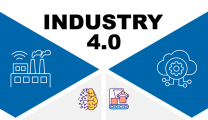The Importance of Email Marketing Databases
An email marketing database is a collection of email addresses and associated data about subscribers, which businesses use to send targeted, personalized, and relevant email campaigns to their audience. The database may include information such as names, demographics, interests, past purchases, and engagement history with the brand.
Well-structured email marketing databases are crucial for any business aiming to communicate effectively with its audience. The primary benefits of a robust database include:
- Improved targeting: A comprehensive database allows businesses to segment their audience based on various parameters, such as demographics, interests, and purchasing behavior. This enables the delivery of highly relevant content, resulting in increased engagement and conversion rates.
- Enhanced personalization: With a wealth of information at their disposal, marketers can tailor their email content to resonate with individual subscribers, fostering stronger connections and boosting customer loyalty.
- Streamlined automation: A robust database for email marketing facilitates the automation of campaigns, ensuring that the right message reaches the right person at the right time.

Having a strong database for email marketing is crucial for email marketing campaigns
>>>> Read Also: Effective Email Marketing Tools To Streamline Email Marketing Efforts
Building and Growing Email Marketing Database
Creating and expanding email marketing databases is essential for achieving long-term success. Here are some strategies to help marketers achieve this goal:
- Opt-in forms: Place opt-in forms on the website, blog, and social media platforms, making it easy for visitors to subscribe to the mailing list.
- Gated content: Offer valuable content, such as e-books, whitepapers, or webinars, in exchange for users' contact information.
- Promotions and giveaways: Encourage sign-ups by offering exclusive discounts or hosting contests for subscribers.
- Networking events: Collect email addresses at trade shows, conferences, and other networking events.
- Partnerships and collaborations: Work with complementary businesses to cross-promote each other's mailing lists.

Businesses should carefully consider the most suitable strategy to build databases
Strategies for Optimizing Databases For Effective Email Marketing Campaigns
Optimizing email campaigns is essential for maximizing engagement, conversion rates, and overall return on investment. Here are some proven strategies to optimize databases to enhance email marketing efforts:
Maintaining Email List Hygiene
To optimize email marketing efforts, it's essential to maintain the integrity of the database. Follow these best practices to ensure list hygiene:
- Remove invalid email addresses: Regularly clean the database by removing invalid, inactive, or bounced email addresses to improve deliverability.
- Implement double opt-in: Require new subscribers to confirm their email addresses, ensuring that they genuinely want to receive content from businesses.
- Allow easy opt-outs: Provide a straightforward unsubscribe option in every email, enabling recipients to remove themselves from the mailing list if they're no longer interested.
- Monitor engagement: Track open and click-through rates to identify inactive subscribers and re-engage them with targeted campaigns or remove them from the mailing list.

Maintaining the integrity of the database is an effective email marketing strategy
Leveraging Database Segmentation for Maximum Impact
To enhance the effectiveness of email marketing campaigns, leverage email database marketing segmentation to deliver tailored content to different audience segments. Some popular segmentation strategies include:
- Demographics: Segment audiences by age, gender, location, or other demographic factors to create relevant messaging.
- Interests: Use information about subscribers' preferences or browsing history to send content that aligns with their interests.
- Behavior: Segment email database based on users' past interactions, such as purchasing habits or engagement with previous email campaigns.
- Lifecycle stage: Tailor campaigns to customers at different stages of their relationship with the brand, from new subscribers to long-term loyalists.

Businesses should carefully segment databases to target the right audiences
Measuring Email Campaign Performance with KPIs
To maximize the effectiveness of email marketing efforts, it's essential to regularly analyze and optimize campaigns. Here are some key performance indicators (KPIs) to monitor and steps for optimization:
- Open rate: Track the percentage of subscribers who open emails from businesses. Experiment with subject lines, preheaders, and send times to boost open rates.
- Click-through rate (CTR): Measure the proportion of recipients who click on links within emails. Improve CTR by using clear calls-to-action, relevant content, and engaging visuals.
- Conversion rate: Assess the percentage of subscribers who complete a desired action, such as making a purchase or signing up for a webinar. Optimize conversion rates by refining targeting, personalization, and email design.
- Unsubscribe rate: Monitor the rate at which users opt-out of the mailing list. Minimize unsubscribes by maintaining list hygiene, segmenting the audience, and providing valuable content.
By continually analyzing email campaigns and making data-driven adjustments, marketers can refine email marketing strategy, leading to improved outcomes and greater return on investment.

Setting metrics to measure the effectiveness of the database is important
Ensuring Compliance with Privacy Regulations
In an era where data privacy is paramount, it's crucial for businesses to comply with relevant regulations, such as the General Data Protection Regulation (GDPR) and the California Consumer Privacy Act (CCPA). To ensure compliance, consider the following guidelines:
- Obtain consent: Always obtain explicit permission from users before adding them to the database, and clearly inform them about the types of content they can expect to receive.
- Be transparent: Provide a clear privacy policy outlining how subscribers' data is collected, stored, and used.
- Offer control: Allow subscribers to manage their email preferences, update their information, and easily opt out of the mailing list.
- Secure data storage: Implement robust security measures to protect the database for email marketing from unauthorized access and data breaches.

There is a growing concern for privacy issues
An email marketing database is a powerful asset for businesses looking to connect with their audience in a meaningful and effective way. By building a robust database, maintaining list hygiene, and employing strategic segmentation, marketers can unlock the full potential of email marketing campaigns. As a result, businesses can expect increased engagement, conversions, and customer loyalty, ultimately driving growth and success in the competitive market.












Replies to This Discussion